Tracy Falbe, one of my writer friends at the Magic Appreciation Tour, wrote an interesting article on the Digital Book Today blog. The post is titled “Are We Enjoying a Golden Age of Reader Rewards?”
Her post and some of the comments that followed got me thinking about how my own buying habits have changed and how they’ve remained the same in the transition from print to digital reading. One of the commenters lamented the flood of unedited and otherwise poor-quality work that has been released directly into the marketplace. The slush pile has effectively moved directly onto the retail sites. But is that really such a bad thing? Has it changed the way readers buy books? I say no.
Slush Pile? What Slush Pile?
I believe readers have all the tools they need to make an informed buying decision. There’s no reason for a reader to spend money or waste time on a dud book. Readers have descriptions, reviews, and excerpts to help them decide whether or not a book is right for them. Some readers even use price as a filter, although I personally find that metric unreliable.
Back before online buying, I did not use reviews to make a purchasing decision. I don’t use them now either. I buy books the same way I always have: the cover catches my eye, I read the description to see if it sounds like a story I’d like to read, and I check out the excerpt to see if I like the author’s style.
I agree that the market has been flooded with a lot of books of questionable quality. I also applaud the fact that great stories are no longer being overlooked or held back by the marketing department of a gatekeeping organization. I’ve read plenty of bestsellers, both pre-Kindle and now, that I thought were terrible. But taste is a subjective thing and I don’t begrudge other readers the joy they got out of reading that same book.
Yes, the slush pile has moved into the bookstore. I’m fine with that. For the most part, I never come in contact with the worst duds. Most retailers give promotional weight to the books that are the highest rated and the best selling. If your tastes tend to run with the majority, that’s a great thing. If not, it’s kind of a bummer. Regardless, readers do not have to sift through the slush pile. They actually have to make an effort to find the least popular books.
The Bounty of Free
KDP Select and other “price matching” tricks have created plenty of opportunities for readers to get their hands on free e-books. Although it’s true that in the past you rarely could get free versions of first-release print books, free books are not unique to the digital revolution.
The bounty of free has existed since books have been mass-produced. It was possible to get free and bargain books even in “the old days.” When the cover price for paperbacks went above $5 (yes, that was a long time ago), I pretty much stopped buying new books except on rare occasions (read: mega sale). I started shopping in used bookstores and at library book sales. I checked books out of the library. Sure, I never could get my hands on that hot new bestseller everyone was talking about, but I’m patient. I knew I’d get it eventually.
Tracy mentioned that authors are offering all kinds of free goodies and doing giveaways to get attention for their books. I agree we may be seeing more of that promotional “largess” (to use her word) in the current market. However, I think the increase in giveaways is more about authors promoting their low-margin product in a highly competitive marketplace than it is about the move to digital reading.
The Changes are Mostly Good
My shopping patterns haven’t changed much. I pick up free e-books and I love the low prices of most e-books today. I still won’t spend more than $5 on a book, so once again, the newest bestsellers are generally out of my reach. I don’t care. I have plenty of other material to choose from, and the self-published books I’ve read continue to impress me.
One thing that has changed is that a lot of the works I’ve found would have never seen the light of day if they had to go through a bestseller-minded gatekeeper. I wonder how many wonderful stories the world has lost out on because the author gave up before he or she found the right agent or publisher? I suspect the answer is many thousands. Possibly millions. Writers publish something like 50,000 titles per month through KDP. Imagine the pent up supply of books that figure represents, and how many stories from past writers have been lost forever.
For me, the only sad thing is that there is no “aftermarket” for used e-books. That may change because Amazon has registered a patent on a mechanism for reselling “used” e-books. Meanwhile, libraries and the publishers who supply them are still trying to figure out what e-books mean to them.
I have faith that those issues will be ironed out. In the meantime, I’m a happy camper because I have more great stories to choose from than ever.


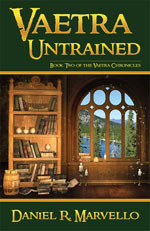
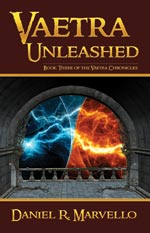
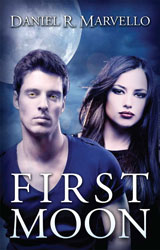
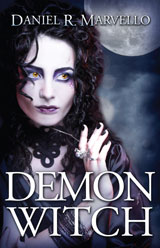
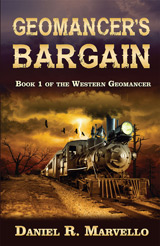
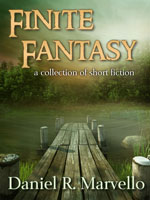
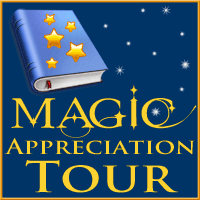

Great thoughts Dan. I come to e-reading differently- I hadn’t been reading fantasy in nearly fifteen years, and really I was only "back" because I had started chronicling. So I was in the beta-groups, reading other folks’ stuff and pressing the flesh on various blogs.
My problem- I’ve committed to the notion that my vocation can cost no money. So I’ve had very limited ability to look at the work of others. But what I’ve seen convinces me you are spot-on with your observations. And really, who should fear the slush pile? We need a better name for it! Maybe the League of Replacement Heroes or something.
Thanks for stopping by and commenting, Will.
I agree that we need a better name for the slush pile. The term is a reflection of derogatory publisher attitudes toward the work of writers who have not yet been vetted.
Now, just about anyone who can write a book can also publish that book. All of us as readers get to judge whether or not that is a good thing, rather than letting some corporate marketing department making the decision for us.
I think when this whole indie movement thing started authors were rushing their books to market without proper editing, professional covers, beta readers, etc. In fact, I’m going through my "slush pile" (aka, all the free eBooks I downloaded 1-2 years ago) and there are definitely some that never should have been published. I imagine a lot of these authors who are still in the game have cleaned up a lot of the mistakes I’m seeing, but if I were strictly a reader and not an author (meaning I have a bit deeper understanding of the challenges involved), it’s too late–the first impression has been lost.
If you follow some of the reader discussions over on Goodreads you’ll see an almost militant viewpoint about books not being released until they’re "ready". Believe me, this is the word of mouth you don’t want!
I think we are going to see the mechanisms in place (such as ratings and reviews) provide that buffer between true ‘slush’ and books that are ready for market. But, I also believe authors, especially new ones, will continue to release books before they’re ready and that they’ll get slapped down and do better or drop out of the game once they fully realize the commitment it takes.
Thanks for mentioning my recent article. I hope that all the extra marketing and selection brings more people into the joy of fiction reading. My book buying habits have basically expanded since the internet. I used to hit used book stores too way back when. I don’t think I ever got a new book on sale until shopping at Amazon in the late 1990s. My point was mostly that I feel readers are much more actively marketed to than before. When I was growing up and becoming a reader, I never saw ads for books. I never read a book review. I never encountered a book giveaway drawing. There was little or no way to contact an author and say wow I liked your book. Everything is so much more exciting now.
Scott: You make some great points. I particularly agree with "the first impression has been lost." However, as an author, you no longer read books like a non-author reader. I’ve been amazed at the number of glowing, 5-star reviews I’ve seen on books that are loaded with editing errors. I’m talking about thoughtfully posted reviews that appear to be genuine from readers who felt the story made up for the delivery. I’m not defending the publishing of poorly-edited books in any way; I’m just saying that it’s not as much a barrier to success as we might hope.
Tracy: You are so right. The Internet has been a great boon to both writers and readers in many ways. I don’t think I would have even started writing fiction if it weren’t for the resources I’ve found and the support I’ve gotten from writer friends through the Internet. I don’t pretend to be one of those writers who "has no choice but to write," but now that I’ve started, I certainly don’t want to stop!
For me, it hasn’t changed the *way* I buy books, but it has drastically increased the number of books that I buy.
The price points of the indie revolution ($0.99-$4.99, for the most part) makes it so that I get to branch out and try new things far more often than I did before this whole thing got started. When I was young, I read a LOT of books through the library or via school, but for about 6-7 years in the early 2000s I read probably six or seven books a year, all in series that I had already begun, the day they came out.
I was shelling out $20-$30 for a hardcover because I couldn’t wait, and then occasionally I would buy another book or try something new from the shelves, but at $8-$10 for a paperback, it was fairly rare. (The exception is probably the year or two that I spent devouring Games Workshop’s Black Library, where I bought a whole lot of paper books.)
I feel much more comfortable reading a book by an author that I haven’t tried at the $2.99 or $3.99 price point. It’s an easy, snap decision… and now that I’m one of them, I know exactly how happy it makes them when the sale shows up on their report! =)
I will say, though, that my buying process is the same whether standing in a bookstore or browsing Amazon. Does the blurb catch my interest? Is the cover interesting? Does the sample work for me? If all three are yes, then it’s a go. Otherwise, I move on.
Thanks for commenting, Chris. It sounds like you buy pretty much the same way I do. Even now in the digital age.
I feel like you do about trying new authors too. The low prices of ebooks make it much easier to give them a shot. And with my book currently at $2.99, I hope other readers feel the same way!